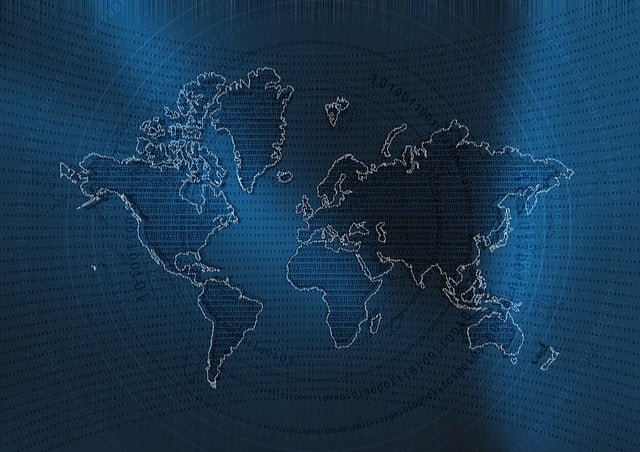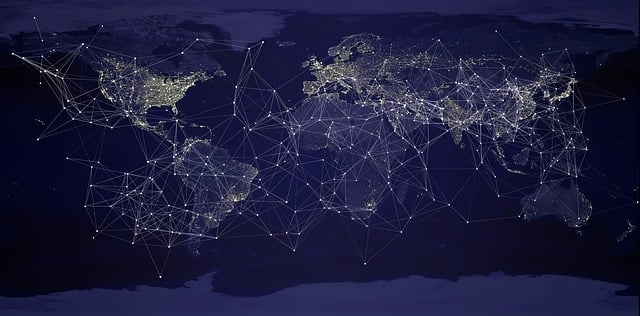Many find the idea of a single universal language appealing. Picture this: no more language learning, fewer misunderstandings from mistranslations, and a deeper understanding across cultures. For some countries, it could even boost tourism by removing language barriers. Suddenly, travel becomes seamless. However, the loss of cultural heritage is a significant drawback. Besides this, even with a single starting point, languages would likely evolve and branch out over time.
Before we get into the nitty-gritty of the potential advantages and disadvantages to a Universal Language, let’s just imagine everyone in the world speaking one single language. At the start of this timeline, everyone understands everyone from every different country. I’m not going to be going into depth about the differences in language that would probably arise as a result of differences in living styles and conditions. For example, those living in deserts would live differently from those in colder climates, which would result in different lifestyles, values, and cultural patterns.
Fast forward 500 years, and languages will have shifted dramatically to the point that they are difficult to identify as their original language. Even though we started by using the same language, because language is a living thing, it will naturally change. A good example of this is comparing ye olde English to the English we use now. Those living in Shakespeare’s time weren’t trying to speak a different English to us, but it naturally happened over time. Now, anyone who has tried to read an original Shakespear knows how difficult it is to understand words and meanings. The point of this is to say that even if we started with a Universal Language, it would probably naturally change over time and diverge in different ways in different parts of the world.
Let’s ignore that for a moment and consider the positive and negative changes that might come about through the use of a language.

What are the benefits of a universal language?
The benefits of a universal language relate mostly to how countries interact with other countries. On a large, broad scale, there would be scientific and economic benefits almost immediately. Scientific papers wouldn’t be translated into other languages, and knowledge transfer would be quicker across the world. Scientific breakthroughs occur more often because all of the scientists in the world will effectively be working more closely together.
Companies that wish to go, or who already are international, would be able to expand their horizons quickly and easily without worrying about a cultural or language barrier. Products would be able to be removed into new markets, providing many companies with financial gain. This would also help increase the competitiveness of products and help make sure that technology continues to advance.
A universal language might have helped avoid some issues a few companies faced when expanding their market or launching a new product. For example, when KFC launched in China using its slogan “Finger Lickin’ Good”, this was translated to “Eat Your Fingers Off” in Chinese. Obviously this did not quite raise the same level of appeal that the marketing team may have desired.
Another similar situation arose with Electrolux expanding into the UK. Their slogan was “Nothing Sucks Like An Electrolux”. While the word “suck” is generally only used in a negative sense, there is also a sexual connotation that could be assumed from this slogan.
In a world without language barriers or the associated cultural differences, these kinds of issues simply wouldn’t arise. While this is a nice reason to claim that a universal language should be used, this doesn’t take into account things that would be lost should a universal language be used and all other languages be removed.

What would be lost due to a universal language?
While the benefits of a universal language might be clear, what would be lost through a universal language is much more difficult to quantify. The uniqueness of different cultures would vanish with the advent of a universal language. The biggest way this loss of culture would be communicated is through the loss of art and media that we would see. Because art and media reflect our cultural values, if there were a universal language, much of our culture would merge. This would mean that our beloved K-dramas would no longer exist, as people from different cultures would not exist to create anything that reflects their perspectives. We can in some way experience what it might be like if there was only one universal language. This is experienced a little bit when languages go extinct in our world today.
We learn the culture of other languages while learning the words of a new language. This is an unbreakable combination: learning a new language leads to learning a new culture. If you want to know more about how this works, read more about it here.

What Causes A Language To Go Extinct?
Although there are many languages in the world today, languages all die in the same manner: humans stop using them. The reasons that humans stop using them may vary, but the resulting extinction of a language still occurs. Our world currently has about 7,000 languages that are spoken around the world. This ranges from languages spoken all over the world, such as English, to languages that are spoken by only three people, such as the Badeshi language spoken in Pakistan. It is likely that this language is now completely extinct or on the verge of extinction.
Languages that are at risk of extinction are known as moribund languages. A language reaches this state when children of native speakers do not use the language as their first language. An example of this could be Indigenous groups who start to use the dominant language of the region rather than their own.
At first, this may be used just in social situations such as at school or in clubs, but over time, the dominant language starts to be used more and more at home. Eventually, perhaps over one or two generations, the children no longer use their mother tongue and instead use the dominant language almost constantly. They are no longer carrying the Indigenous language over, and by the time they have children of their own, the Indigenous language is no longer spoken except perhaps with surviving grandparents.
Imagine such a thing existing but all over the world. Not just for smaller, lesser-spoken languages, but for larger languages as well, as people start to use only the Universal Language. While there would certainly be benefits, I believe that many speakers would soon start to feel a loss of identity as a result of losing their native language. While this feeling might fade over generations, I don’t believe it would truly vanish.
I believe that there would be many who would seek to learn their mother tongue, even if only to retain some of their personal culture and heritage.

Why Making A Universal Language Is So Hard
In some ways, we have a poor man’s Universal Language, generally used for business already, though not perfectly. This is the English language, and in this context, it is called a lingua franca. While this goes some ways towards being a Universal Language, it is not truly universal in the sense of being spoken at home and in the office.
If we decided to create a true Universal Language, many questions would arise. Which language will become the Universal Language, and who will decide it? Will it simply be the language that is the most spoken in the world? Is it most spoken by native speakers (Chinese) or native and language learners (English)? Who would enforce such a change? What happens if a country doesn’t want to change to the Universal Language and wants to keep its identity intact?
One way to get around some of these issues is to create a Universal Language rather than simply ask parts of the world to adapt to a new language. Such a language would obviously need to be easy to learn, as the more difficult it is, the harder it would be for everyone in the world to adopt it.
An attempt to create such a language took place almost 150 years ago, when the Esperanto language was created in 1887. This was created for the express purpose of becoming an International Language that was easy to learn. Needless to say, it didn’t become a widespread language, though it is still used in some circles of language learners.

Conclusion: The Value Of Learning A Language In A Multi-Lingual World
At the end of the day, while there may be many benefits to having a universal language, there are simply too many issues that are preventing this from occurring. The outcome is that we must strive to learn languages in order to ensure the world is as connected as possible. While misunderstandings may continue to happen, we can help reduce them by using our cultural and language knowledge to connect the world together more closely. Your efforts to learn a language will always be needed and valued.
While language learning is hard at times, the continued sharing of cultures across different languages is a beautiful experience to be a part of. While financially, we may gain from having a Universal Language, I don’t believe that the losses we would experience from the lost cultures would make it worth it by any stretch. For those of you wondering if learning a language will ever be worthless, let me tell you emphatically that it will never be a wasted skill.
If you are looking to start your language learning journey, look no further! You can start today. I recommend looking at Duolingo first.
- Should Everyone In The World Speak A Universal Language?

- The Power of Immersing Yourself In A Language For Learning

- Start Your Language Learning Journey: Duolingo And Other Methods

- Does Learning A Language Help You Learn How Others Think

- Can You Learn a Language Without Learning Its Culture?

- Unlock Fluent Expression: Sentence Builders Across Languages

- Hidden Gems: Underrated Duolingo Languages Worth Learning

- The Ultimate German Pronunciation Guide

- Where To After Finishing Duolingo For Language Learning










